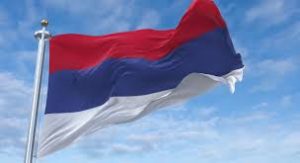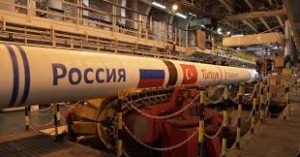The Russian President Vladimir Putin met with Milorad Dodik, the President of Republika Srpska, the want-away region of Bosnia and Herzegovina on Tuesday (April 1). The timing is interesting as the European Union has just lost effective sovereignty over Eastern European energy supplies, with implications for the erstwhile Republic.
Republika Srpska

Dodik represents a region of Eastern Europe that is predominately Orthodox, yet increasingly at odds with its current legal capital, Sarajevo in Bosnia. Sarajevo and Bosnia are predominantly Muslim. All these regions were part of the old Yugoslavia, which fractured into six countries in the 1990s Balkans Wars. An independence move by Republika Srpska, which already has its own parliament and legislature, would add a seventh. Moscow already treats it as a sovereign nation. An arrest warrant is in place from Interpol for the arrest of Dodik on charges of breaching an EU-backed court order preventing him from engaging in politics due to his ‘separatist’ positioning.
The meetings with Putin involved collaboration in scientific and technological development, energy supplies, and higher education. The position of Republika Srpska in Europe is an evolving issue.
Eastern European Energy Supplies

There have been parallel developments in Eastern European energy supplies, which have been under serious pressure since the decision by Ukraine to terminate pipelines from Russia which transit the country and enter the EU via Hungary. Those were disconnected on January 1st this year with Hungary and Slovakia complaining to the EU concerning Kiev’s decisions and asking for diplomatic assistance. This has had a knock-on effect to several other Eastern European countries, cutting off supplies with the additional intent of making them subservient to Ukraine’s political will. Brussels has failed to react or to criticise Kiev’s actions.
That situation has now changed, with Hungary and Serbia announcing yesterday (April 1)) that they had increased the capacity of the interconnector between the countries.
Russian gas flows to Hungary via the Balkanstream trunk pipeline, a Western branch of the Turkstream pipeline. Balkanstream runs through the Bulgaria and Serbia. From Bulgaria, which has stopped buying Russian gas directly (but buys it instead from Turkiye), supplies flow onwards to Serbia, and onto Bosnia & Herzegovina and Hungary. The volume of transported fuel bypassing Ukraine has been increased from 2.6 to 3.5 billion cubic metres per year. Republika Srpska also wants – and needs – a connecting pipeline that would not pass through Bosnian territory. There are plans to further expand the pipeline to supply Austria and Italy. An eastern route from Bulgaria also services Romania, Greece, and North Macedonia.

It should be noted that recent attacks on the Turkstream pipeline apparently by Ukrainian forces have been reported by Russia,and have also been considered as attacks on Hungary’s sovereignty in Budapest.
This new situation changes the Eastern European dynamics considerably as it means that Brussels has now lost effective energy sovereignty over several countries. This reverses current EU policy of cutting Russian gas supplies off from the entire bloc, and also reinforces the diplomatic, energy and trade position of Moscow with these nations. The implications of this will become apparent over time.
Further Reading

 Русский
Русский














